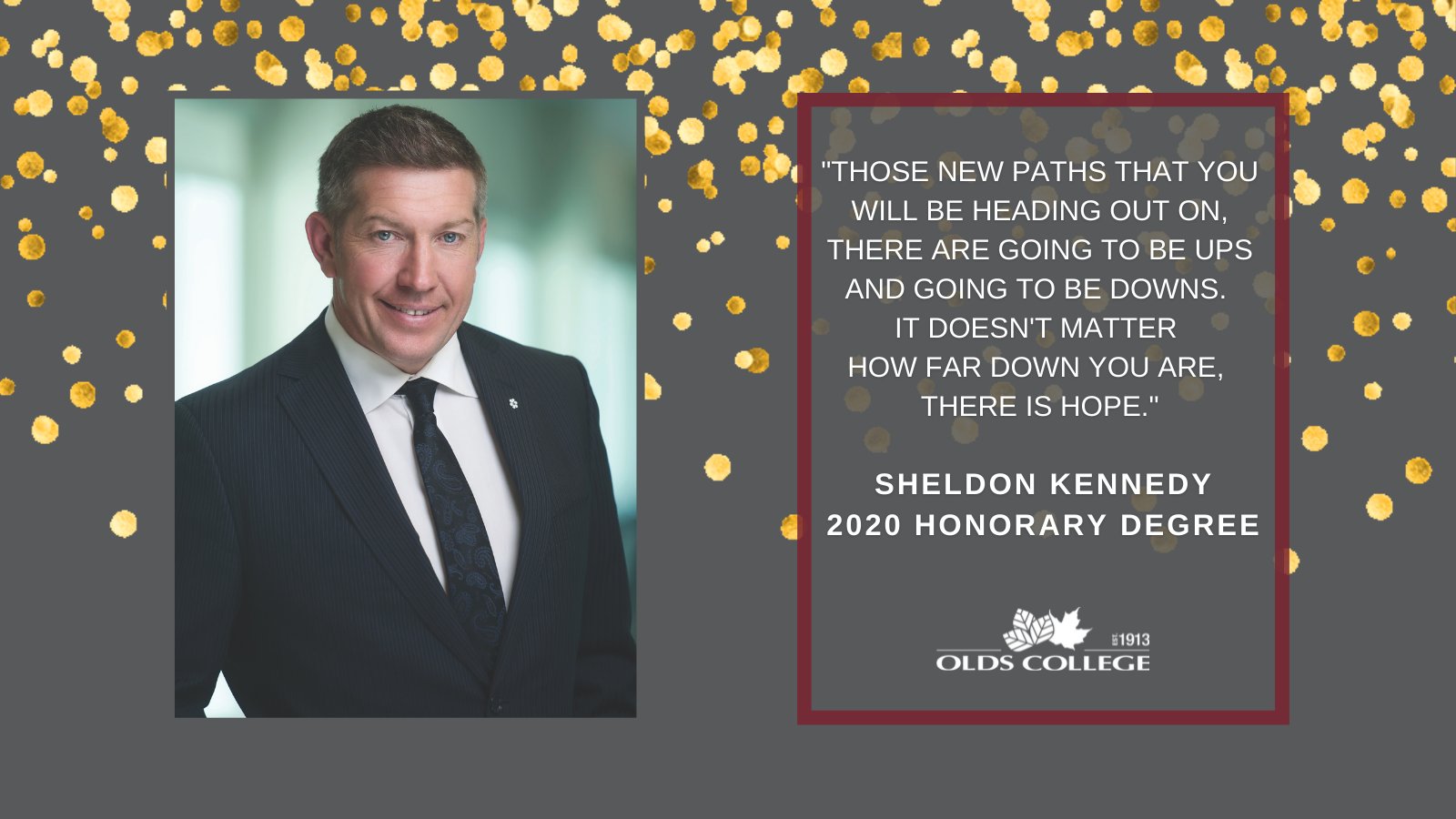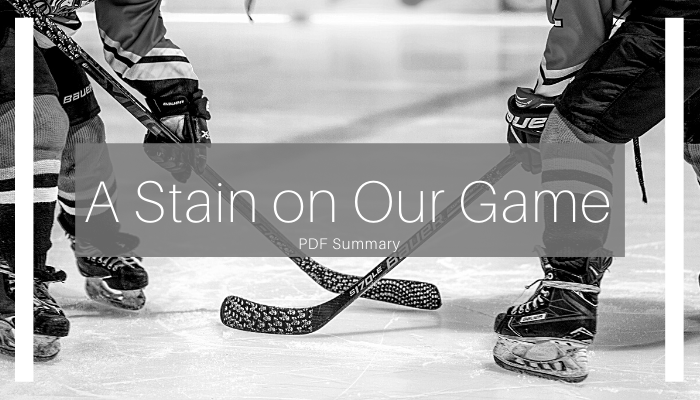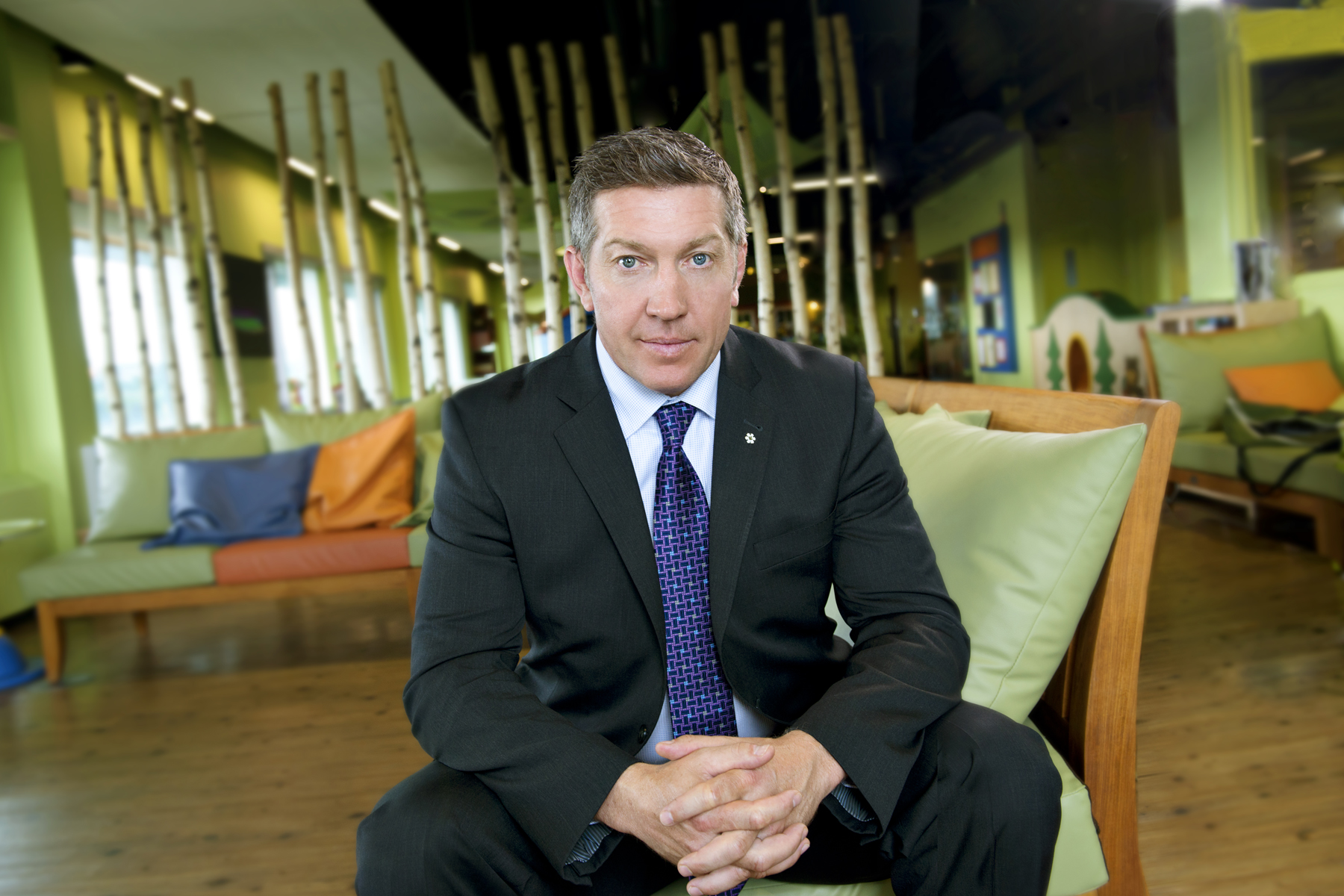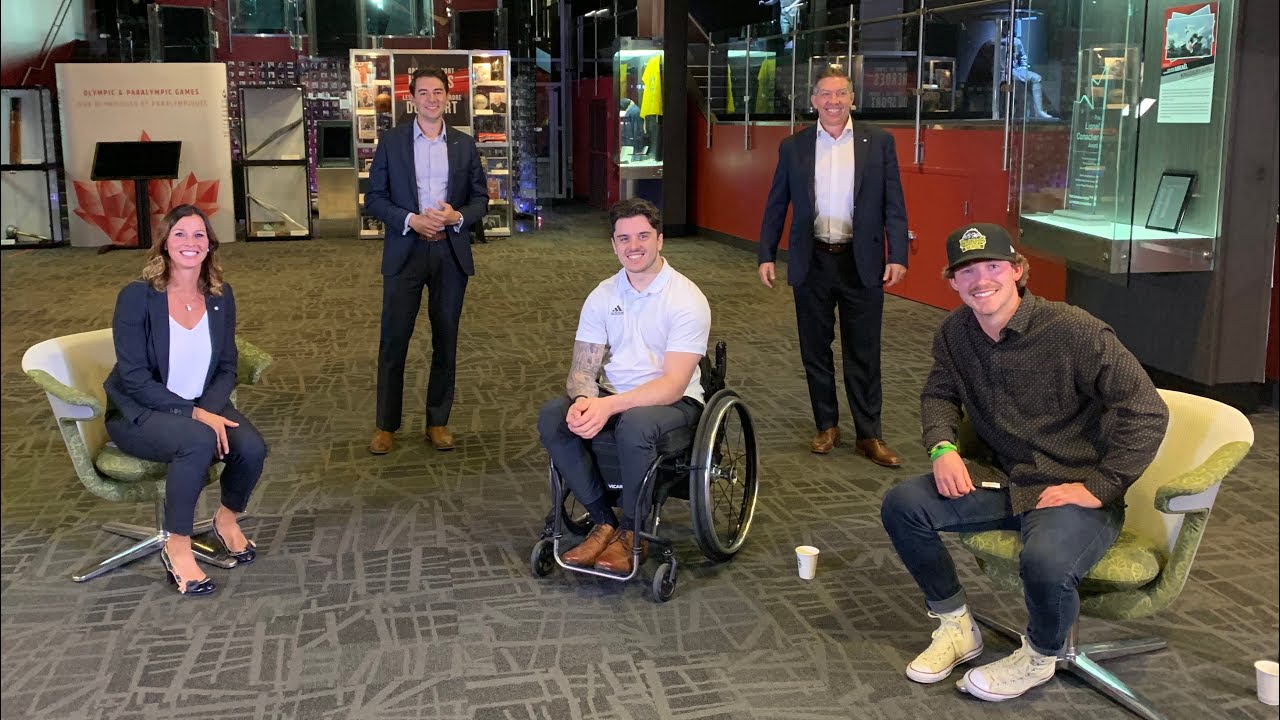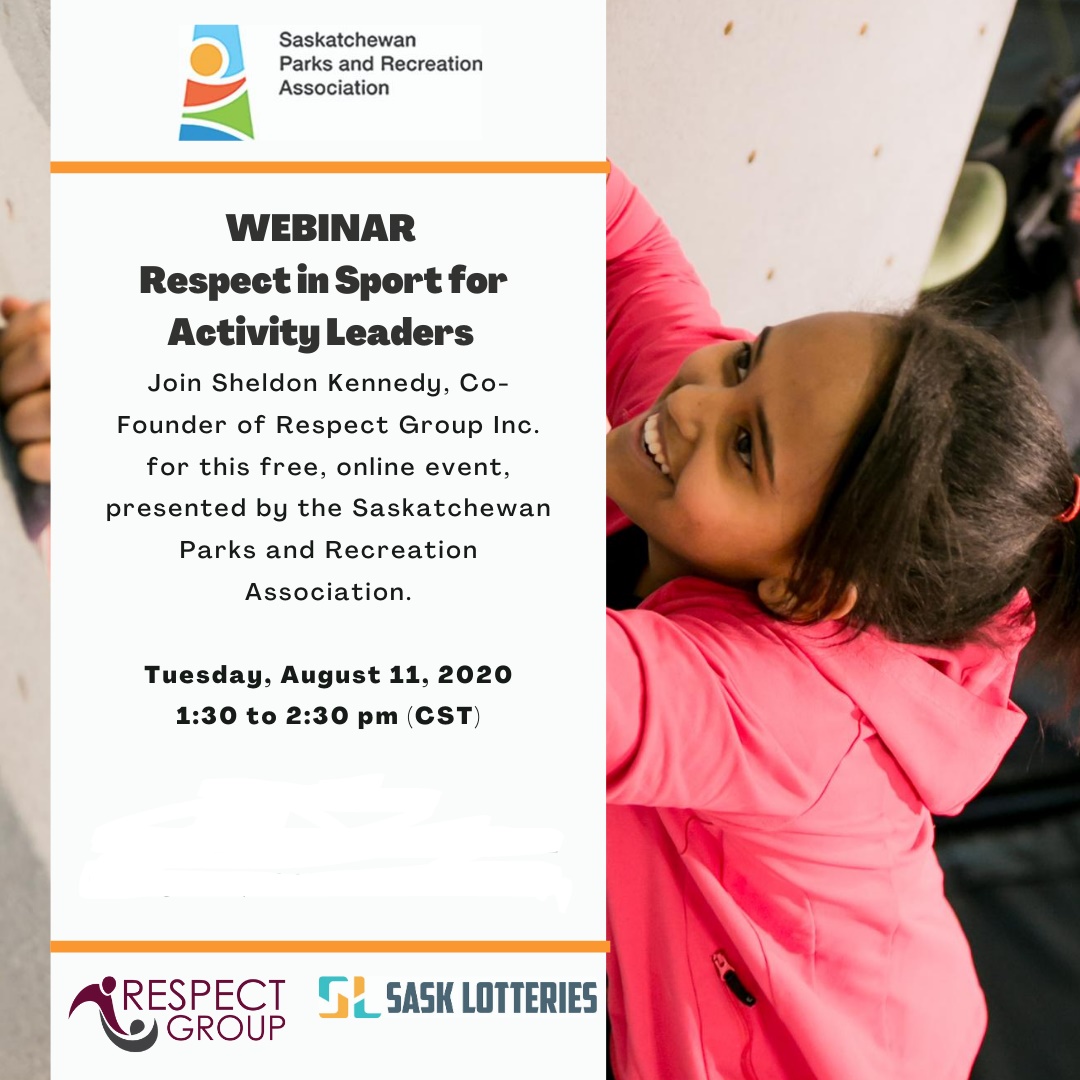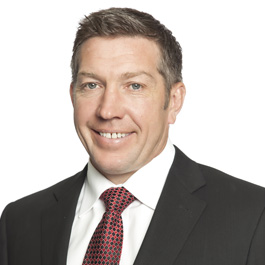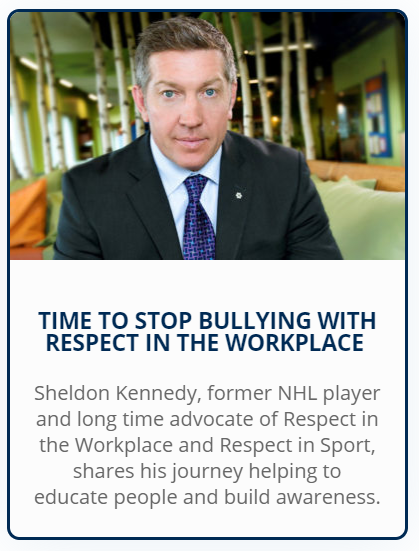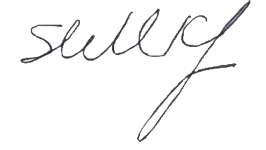
The Winnipeg Free Press recently published a series of articles by Jeff Hamilton entitled ‘A Stain on Our Game’, an investigation into convicted serial sex offender and former hockey coach Graham James. This series explores the lasting impact of his years of abuse on the Canadian hockey community and more importantly, on those who were victimized by him. Hamilton’s research shed a light on the factors that allowed the widespread abuse to occur, the lifelong impacts on the survivors of James’ abuse, and what sport organizations across Canada have done and must continue to do to prevent maltreatment and abuse from occurring in sport moving forward.
Lessons Learned:
Understanding and Defining Abuse & Maltreatment
The Canadian Centre for Ethics in Sport’s Universal Code of Conduct (2019) defines maltreatment as, “Volitional acts that result in harm or the potential for physical or psychological harm”. When maltreatment occurs repeatedly over time, a pattern of abuse is formed. Abuse can be psychological, physical, or sexual, but psychological abuse is the most widespread and at the root of any and all other types of abuse (Mountjoy et al., 2016). Any type of maltreatment or abuse is rooted in an imbalance of power.
As Hamilton clearly detailed, Graham James groomed young players, who often came from vulnerable or challenging family circumstances, and wielded power over them by isolating them from their peers, using the hypermasculine culture of hockey to disempower them to speak out, and using his influence to control the future of their hockey careers. Further, a win-at-all-costs mentality and the success of James’ teams meant that those who wanted to speak out feared they would not be believed or that they would face backlash. When Darren McLean, Rick Girard, and other veteran players spoke to team management about the abuse their teammates were experiencing, McLean was instead the one punished and asked to leave the team, while James was allowed to continue coaching and abusing his players (Hamilton, 2020).
Emotional Maltreatment is Equally Harmful and More Prevalent Than Other Forms
While many survivors detailed the grooming and sexual abuse they experienced, weaved throughout their and others’ accounts was a clear pattern of emotional maltreatment and abuse. Emotional maltreatment and psychological abuse is the most common type of maltreatment experienced by young athletes, and can have equally devastating impacts as other forms of abuse (Mountjoy et al., 2016). Psychological abuse, in comparison to physical or sexual abuse, is most strongly associated with athletes experiencing post-traumatic and dissociative symptoms (Mountjoy et al., 2016). Further, psychologically abusive coaching practices can both hide and lead to grooming behaviours and sexual abuse (Mountjoy et al., 2016).
Hazing is a Longstanding Problem in Hockey with Serious, Lasting Impacts
Hazing in hockey is a longstanding problem and is currently an issue before the courts, with several former Canadian Hockey League players leading a class-action lawsuit against the CHL and its three member organizations, the WHL, OHL, and QMJHL (Hamilton, 2020). At the core of this lawsuit is the claim that the organizations have perpetuated a ‘toxic environment’ in which widespread abuse and maltreatment, from both adults and peers, is widespread and accepted (Hamilton, 2020).
Hazing is defined as any harmful interaction that involves some component of psychological, sexual, and/or physical abuse (Jeckell et al., 2018). The willingness of the victim to participate has no bearing on whether an activity can be considered hazing or not; if there is any component of harm for the victim, the activity can be considered hazing (Jeckell et al., 2018). Hazing activities have the potential to lead to extremely dangerous physical and psychological outcomes, including death (Jeckell et al., 2018). Though hazing is often viewed as ‘harmless’ and ‘team-building’, it instead has the opposite effect, reinforcing existing power structures and hierarchy amongst team members, creating more division and a lack of unity (Jeckell et al., 2018).
The Effects of Trauma are Widespread and Long-Term
Many survivors of abuse can and do go on to experience positive mental health and well-being, return to sport, and resume their regular lives and activities (Mountjoy et al., 2016). However, as Hamilton (2020) clearly showed through his interviews, the short- and long-term impacts of abuse in sport can be extremely damaging to athletes, extending beyond sport and the athletes themselves to affect their families, friends, and other areas of their lives, long after the athlete has left the sport (Mountjoy et al., 2016). Athletes suffer many opportunity costs within sport, including the loss of sponsorship, poor performance, reduced chances to win at high levels, willingness to engage in doping or cheating, or leaving sport altogether (Mountjoy et al., 2016). Outside of sport, the impacts include (but are not limited to) psychosomatic illnesses, disordered eating, low self-esteem, poor body image, anxiety, depression, substance misuse, self-harm, and suicide (Mountjoy et al., 2016). Further, the risk of self-harm, suicidal thoughts or attempts, or completed suicide is increased with each type of abuse that a young person experiences (Mountjoy et al., 2016).
Parents Are Essential Stakeholders in Keeping Young Athletes Safe & Sport Organizations Accountable
Parents are their children’s first and most important advocates and are powerful stakeholders in sport culture. Parents are in an important position as bystanders to call attention to inappropriate behaviour and to step in when maltreatment occurs. Parents, as much as other adults involved in sport organizations, should also receive the education and tools to recognize and address bullying, abuse, harassment, and discrimination, or BAHD behaviours. Further, parents are an important stakeholder within sport organizations to call for culture change, moving away from a focus on developing the few elite-level athletes and towards developing all young athletes as both better players and humans (Hamilton, 2020).
Education is Crucial for Empowering Bystanders to Address Incidents of Maltreatment
Organizational and cultural change starts with leadership. The first step in the process of systemic culture change is to be aware of and understand that maltreatment and abuse occurs everywhere, including in sporting organizations, and that the consequences are serious and long-lasting (Mountjoy et al., 2016). A key building block in this process is education at all levels of sport organizations (Mountjoy et al., 2016). According to Mountjoy et al. (2016), “Prevention begins with awareness-raising about non-accidental violence through the dissemination of evidence-based education and training programs.”
Bystanders are in a crucial position to disrupt patterns of maltreatment and abuse in sport environments. Further, if they do not intervene, they become part of the problem; when bystanders who witness or are aware of the abusive behaviour do nothing, either through acceptance of the behaviour, non-intervention, denial or silence, athletes believe that the behaviour is acceptable and that they would be powerless if they chose to speak out (Mountjoy et al., 2016). Bystanders can be anyone involved in a sport organization, including athletes. In fact, educating youth involved in sports from a young age on the difference between acceptable and unacceptable behaviours can help them to recognize when maltreatment is occurring and empower them to stand up for themselves and their peers.
Resources
More information about supporting individuals who are experiencing or have experienced abuse can be found below:
Sport-Specific Resources:
- The Canadian Sport Helpline supports victims and witnesses of maltreatment in sport to report their concerns and plan their next steps. The Helpline is available 7 days a week from 8:00 am-8:00pm EST by phone or text: 1-888-837-7678 or by email: info@abuse-free-sport.ca
- Any suspected child sexual abuse or misconduct occurring online can be reported to Cybertip.ca
- The Canadian Centre for Child Protection has resources and information for reporting suspected child abuse
- Commit To Kids, a program from the Canadian Centre for Child Protection, has created helpful infographics to understand the process of reporting abuse and misconduct:
- The Coaching Association of Canada has also created Resources for Parents to better understand safety in sport, including the responsibilities of your sports organization and of individual coaches
Mental Health & Maltreatment Resources:
- A full list of resources available in each province and territory for survivors of abuse can be found on the Ending Violence Association of Canada’s website
- Free mental health support is currently available across Canada through the Wellness Together Canada website
- For immediate crisis support, adults can text WELLNESS to 741741 and youth can text WELLNESS to 686868
- The Canadian Centre for Victims of Crime has a helpful list of resources for individuals who have experienced maltreatment and are in need of support
Prevention Resources
The first step towards prevention is education. Learn more about our online programs here:
The Respect in Sport Parent Program provides parents with the tools to create and maintain Safe Sport environments.
The Respect in Sport Activity Leader educates youth leaders, coaches, officials and participants (14-years and up) to recognize, understand and respond to issues of bullying, abuse, harassment and discrimination (BAHD).
The Stay in the Game program is designed to educate youth 10 -14 years old on three key themes; finding your voice, staying safe and having fun.
Tools, tips and research summaries to discover:
References:
Canadian Centre for Ethics in Sport. (2019). Universal Code of Conduct to Prevent and Address
Maltreatment in Sport. Retrieved from
https://mcusercontent.com/95de45c23ac490c5d391e924f/files/7cc4ba0b-7565-43bf-aa4c-
c5be146e7d97/UCCMS_v5.1_FINAL_Eng.pdf
Hamilton, J. (2020, December). A stain on our game: The life and destructive legacy of Graham James. Winnipeg Free Press. Retrieved from https://www.winnipegfreepress.com/special/graham-james/
Jeckell, A. S., Copenhaver, E. A., & Diamond, A. B. (2018). The spectrum of hazing and peer sexual abuse in sports: A current perspective. Sports health, 10(6), 558-564.
Mountjoy, M., Brackenridge, C., Arrington, M., Blauwet, C., Carska-Sheppard, A., Fasting, K., … & Starr, K. (2016). International Olympic Committee consensus statement: harassment and abuse (non-accidental violence) in sport. British Journal of Sports Medicine, 50(17), 1019-1029.
